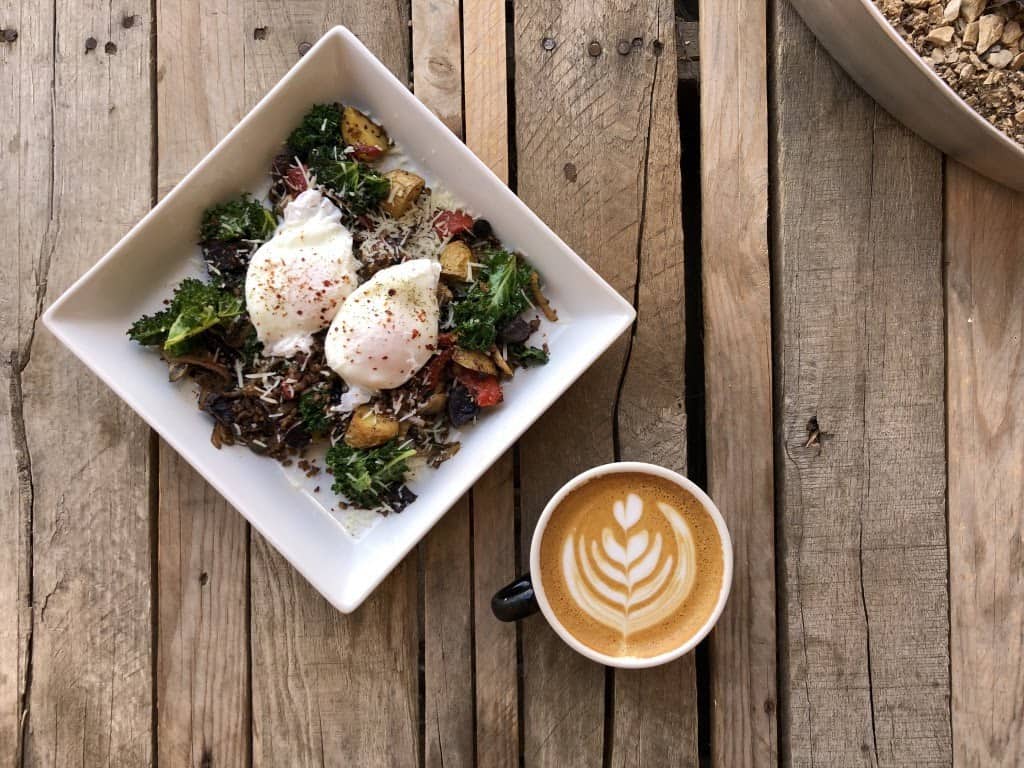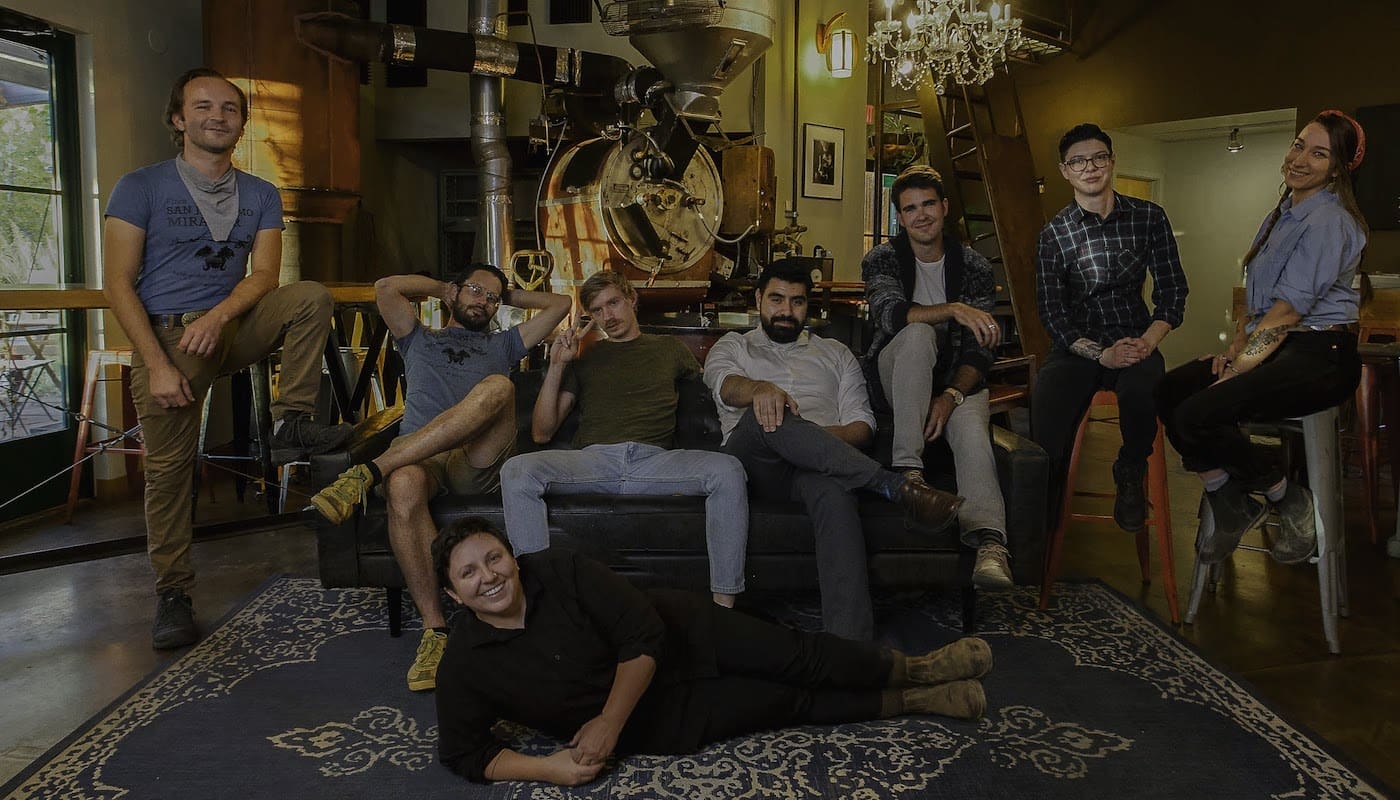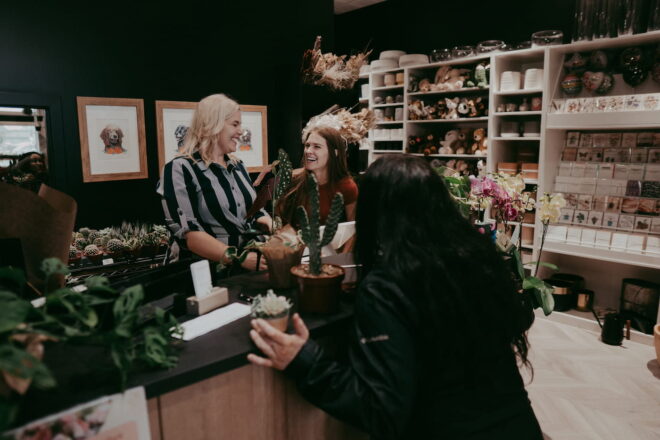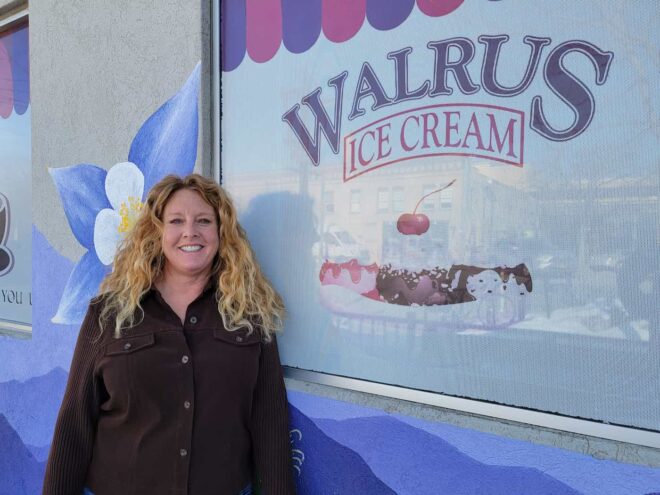Iconik Coffee Roasters
Editorial Team
6 min readIn this installment of Meet the Merchant, we speak to Sean Ham of Iconik Coffee Roasters in Santa Fe, New Mexico. Sean shares how he went from loyal customer to operational owner, using Clover to turn Iconik from a struggling cafe to a thriving business with three different locations.
Clover: Hi Sean, thanks for chatting with us today. Can you tell us the story behind Iconik Coffee Roasters?
Sean Ham: Sure! The company was founded in 2012 by Natalie Slade, Darren Barry, and Todd Spitzer, but I didn’t get involved until 2015. Before I got involved, I was a customer in the cafe. I would work remotely from Iconik doing computer work and tech consulting. I became friends with the owners, and that’s how I found out that they were about to go out of business. I decided to get involved and teamed up with the landlords of the space, managers Dylan Miller and Chase Stafford, and staff to see if we could turn Iconik around.
In 2015, when I came on board, management was basically flying blind. For example, they didn’t know their cost of goods sold, and as a result were selling items for less than what they paid for them. Their books were a mess, and it was very difficult to see what was actually happening on the POS system they were using.
In my experience, one of the main mistakes people make when they take over a business is to change everything right away. They inadvertently kill the things that inspired them to save the business in the first place. In the case of Iconik, it really wasn’t public knowledge that we had changed ownership until two or three years afterwards. That’s what we wanted—to protect the vibe and atmosphere while helping the operational side run better.
Clover: What do you think brings people into Iconik?
Ham: Iconik serves a unique role in Santa Fe. When you visit, you’ll see a cross section of different types of people from all walks of life. We’re a hub for remote workers, artists, musicians, and all sorts of different social circles and age groups. Everyone comes to Iconik and their paths collide in a way that they really never would in everyday life. It’s a really cool environment.
I think the Iconik experience begins as soon as you enter the space. There’s lively, fun music playing. We have comfortable places to sit all around. You see familiar faces. You may grab coffee and run into somebody you haven’t seen in several months who also lives in Santa Fe. If you’re a regular, you’ll say hi to other friends who you see there every morning. Basically, Iconik provides a way to connect people to their coffee, their community, and each other.
We’re trying to offer the counterpoint of the experience one typically gets from a specialty coffee shop. Rather than be snobbish about coffee, we greet you with a warm welcome. Our team members want to be here and are excited to serve others.
We also have an unbelievable food menu. It’s more than just baked goods—you can enjoy a full meal for breakfast, lunch, and dinner. We bake and make as much as possible in-house; we make the bagels and even cure our own lox.
In general, anything we can do ourselves, we dive right into. We even roast our coffee on site in an old roaster from the 1920s that we’ve spent the last few years retrofitting and improving.

Clover: When did you feel like Iconik was moving in the right direction, business-wise?
Ham: It took until January 2020. We have three locations that we needed to get running well, consistently. We’ve invested in paying people well, and in staff training. Part of our mission over the years has included sending managers and baristas to travel to different parts of the world to source coffee and meet with farmers with whom we want to do business. We finally reached a place this January where we had a four- or five-trip track record of sending team members to work in other countries. A combination of that accomplishment and steady business results is why January 2020 stands out in my mind.
Clover: How has Clover helped Iconik Coffee make it through?
Ham: The month after I joined the Iconik team, we switched to Clover to get a fresh start and set up everything anew. Homebase was a major part of that. When I joined, labor cost was 48% of gross revenue. You’re going to go out of business if your labor cost is at 48%. But, the team didn’t know their costs were that high; they had no clear way to see that on a day-to-day, hour-by-hour basis and adapt on the fly. The integration between Homebase and Clover was a critical way to see what was going on, and gave us the visibility we needed to track whether the changes we were making were working.
Clover also helped us survive the pandemic. When most businesses shut down in March, we decided to continue on, but had to rapidly pivot to an online ordering platform. We used the Smart Online Ordering app from the Clover App Market, which connects to a WordPress plugin that allowed us to easily integrate the process into our existing website. I installed the plugin and within 24 hours we were ready to start receiving orders directly to our Clover registers, Kitchen Display app, and kitchen printers.
Clover: How else has the pandemic impacted your business?
Ham: In New Mexico, only essential businesses were allowed to stay open. Restaurants were covered as essential businesses, and because we offer breakfast, lunch, and dinner, we were able to keep the shops running. Nevertheless, traffic basically evaporated overnight. We had to figure out a way to keep as many cooks, bakers, and baristas working as possible. We set up an “Iconik drive-in.” Customers could order online and we’d bring their order out to the car.
When people were allowed inside again, we focused on caring for people who maybe hadn’t seen another human in weeks. We wanted customers to come in to get a cup of coffee and a meal and still be as safe as possible, but also have some kind of meaningful social interaction. We’re trying to provide an extra sense of care for people and make sure our customers feel as safe and cared for as possible, despite the circumstances.

Clover: What advice do you have for other small business owners?
Ham: Make sure that you’re not flying blind. Set up your systems so that you can manage all the nuts and bolts of your operations to ensure you’re being financially responsible and intelligent with your decisions. Reward your team as well as you can, when you can. I also recommend setting up your business in such a way that you’re able to focus on your customers and service rather than the minute details of operations.
In this pandemic, remember that people still need social interaction—even if it’s altered or a little bit weird. It’s a part of being human. Community is still important and what you are doing is important. Don’t lose sight of that.
Read more of our Meet the Merchant stories for real-life stories of small businesses in action all over the country.
Related Posts
3B’s Flowers
Walrus Ice Cream
Popular Topics
Stay in touch
Sign up and learn more about Clover.
Thank you for your subscription!
More posts about starting a small business
eBook





